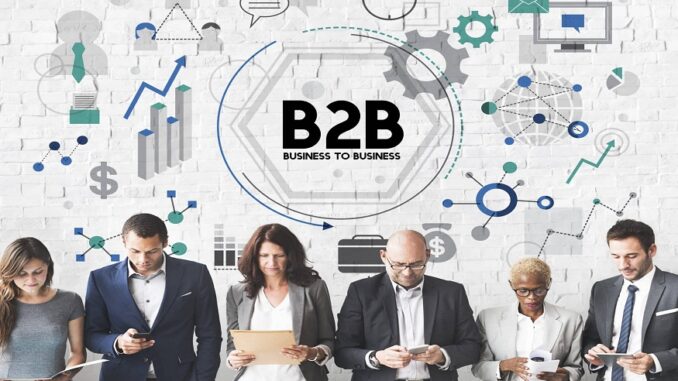
Business-to-business (B2B) e-commerce is expanding rapidly in today’s networked environment. Geographic boundaries no longer restrict businesses, and a genuinely global pool of potential customers exists. However, for B2B organizations looking to grow abroad, language barriers can still be a major obstacle. This is where multilingual e-commerce management enters the picture, providing a potent means of opening up new markets and increasing business-to-business sales.
In the current digital age, your website’s ability to draw in new visitors is crucial. Customers often contact your business through your website as their initial point of contact. Consequently, creating a multilingual e-commerce website helps build a strong and longstanding customer relationship.
The Challenges of Traditional B2B Sales
In the past, regional sales agents and face-to-face interactions were crucial to B2B sales. Although this strategy still has potential, it has drawbacks:
- Restricted Customer Base: It prevents companies from reaching a larger pool of potential customers by limiting them to markets where they already have sales teams.
- Language Barriers: Poor communication can cause miscommunications and obstruct the growth of strong business-to-business relationships.
- Increased Costs: It can be costly and time-consuming to maintain a worldwide sales staff.
How Multilingual E-commerce Empowers B2B Businesses
Ecommerce management with multilanguage platforms offers a dynamic solution for B2B businesses seeking to expand their reach and overcome these challenges. Here’s how:
Reaching a Larger Audience
A multilingual website will primarily assist you in reaching a larger audience and broadening your reach. Even though English makes up 58.8% of web material, you would not want to pass up the 41.2% that could result in significant revenue for you. Furthermore, 40% of your audience would never even consider purchasing from a website in another language, and even if they could speak English, 65% of them are more likely to convert when viewing product pages in their home tongue. 40% of customers said they would not make purchases from websites that do not support their native tongues. Your company proposal will become more accessible to previously untapped client segments if you offer numerous language options, which will boost your revenue and profitability.
Reducing Bounce and Improving Conversion Rates
If your website is multilingual, visitors from other countries are less likely to leave right away when they see that it is not available in their language. Ecommerce management with multilanguage website will lower bounce rates and negatively impact your conversion rate. When customers are certain that they comprehend every step of the purchasing procedure, this will get better.
Establishing a Competitive Advantage
With the current state of the economy, businesses are under greater pressure than ever to set themselves apart from the competition. An international e-commerce sales boost from a multilingual website could be crucial as we transition to a more e-commerce-focused retail environment.
Improved Communication and Collaboration
The ability to communicate and collaborate clearly in many languages with global business partners fosters deeper bonds and more efficient business procedures. Also, having an ecommerce store with language support helps attract the attention of different retailers and wholesalers. This helps you take a competitive advantage and improve the demand for your B2B business in the market.
Customer Centrism
Multilanguage website is the core of this customer-centric approach which can enhance a firm’s level of personalization and become increasingly significant in attracting clients and revenue. 44% of Internet users in Europe believe that because websites are in foreign languages, they are missing out on important information. In particular, if this is not the standard among your rivals, your website visitors will feel noticed and grateful if you can offer them high-quality information in their native tongue. Their displays of gratitude and welcome will consequently result in greater business success.
Cost-Efficient Marketing
These days, a company’s website frequently serves as the centerpiece of its marketing plan. Even more crucial to remember is that, in terms of cost and audience, your website may promote your offer quite effectively. DemandMetric, a marketing consultancy service, claims that content marketing on your website produces almost three times as many leads at a cost that is 62% less than other conventional forms of marketing. In light of this, having ecommerce management with multilanguage website is also very sensible when thinking about your global marketing approach.
Key Considerations for B2B Multilingual E-commerce Management
Careful preparation and implementation are necessary for the successful implementation of a multilingual e-commerce strategy. Here are some important things to think about:
- Target Audience: The intended audience determines which languages your potential B2B consumer segments speak and then ranks them. To find out which languages would provide the best return on investment (ROI), examine market trends and your present clientele.
- Translation Quality: It is imperative to spend money on accurate translations for creating better ecommerce store with language support. Make sure your translations are precise, industry-specific, and convey the subtleties of your business-to-business (B2B) offerings. Think about working with qualified translators who are proficient in the language of your target B2B audience as well as the technical aspects of your company.
- Content Localization: Go beyond basic translation with content localization. Ensure that the product descriptions, technical details, and marketing materials you use for online sales align with your target market’s cultural norms and preferences.
- Technical Aspects: Verify that your e-commerce platform is capable of efficiently managing multilingual content. Select a platform that makes it simple to handle material in several languages and provides seamless connection with translation tools.
- Multilingual Customer assistance: Offering customer assistance in multiple languages is critical to establishing trust and ensuring a seamless purchasing experience for your B2B partners. Consider providing phone, email, or chat help in multiple languages.
- Continuous Upkeep and Updates: Multilingual online shopping necessitates constant upkeep. Continually add new items, special offers, and business updates to your website in all compatible languages.
Examples of Successful B2B Multilingual E-commerce
Multilingual e-commerce management has helped a number of B2B companies succeed spectacularly in foreign markets:
- Manufacturers of industrial equipment: Their multilingual manuals and comprehensive product specifications enable them to serve an international clientele of engineering and procurement teams.
- Chemical and material suppliers: Multilingual e-commerce platforms allow companies to display their goods and safety data sheets (SDS) in many languages to help with international trade compliance.
- Software and technology companies: Software and technology firms can grow their customer base and efficiently compete in a global market by offering product demonstrations and assistance in the local languages. These companies also use multilanguage B2B QuickBooks online for ecommerce, which improves their business finance operations and performance.
Wrapping Up
The growth of e-commerce has given B2B companies a plethora of opportunities to interact with global partners and broaden their reach. Through the implementation of multilingual e-commerce management, business-to-business enterprises can overcome linguistic obstacles, improve customer satisfaction, and fully leverage worldwide markets. Through the implementation of a thoughtful and customized e-commerce plan, business-to-business enterprises may set themselves up for long-term expansion and global success.

Leave a Reply
You must be logged in to post a comment.